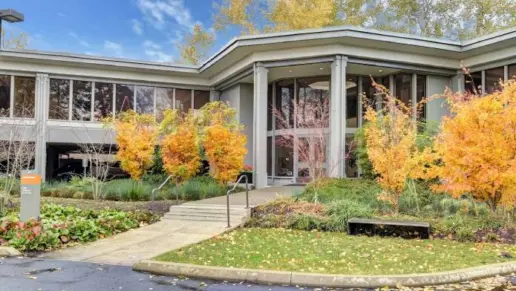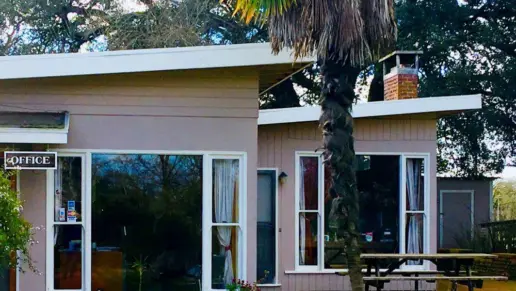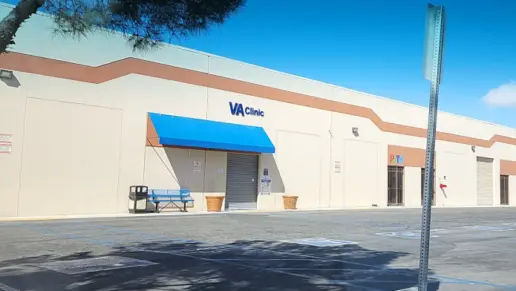About Riverside County Department of Mental Health – Magnolia Avenue
Riverside County Department of Mental Health has mental health and addiction treatment services in English and Spanish. Services are also provided for those who are hard of hearing or unable to hear. Adult and adolescent programs are offered. Dual diagnosis treatment care plans are also possible through their outpatient programs offered at their Presley location in Riverside, California.
Residential, outpatient, intensive outpatient treatment programs and inpatient detox are offered for both adult males and females throughout their network. There are special programs for pregnant women and those with young children. There are also services geared to older adults who are elderly and in need of substance abuse treatment or mental health support. Medication assisted treatment is available for those needing it to help overcome active addiction to alcohol or opiates.
This center specializes in intensive and traditional outpatient programs. Inpatient services, like extensive detox and residential programs for teens, may require travel outside the county for care.
Those who have been involved with the courts due to drugs and alcohol may be ordered to take a DUI or Drug Court program. Residential detox, meds, residential treatment, intensive outpatient and regular outpatient therapy are available. These can include DUI and PC1000 programs run by the corrections system.
Mental health services for those struggling with emotional issues unrelated to addiction or substance abuse can access treatment through the Riverside County Department of Mental Health as well. There are programs that provide counseling, assistance with housing and nutrition needs, transportation, medication management, individual and group counseling.
Latest Reviews
Rehab Score
Other Forms of Payment
Medicaid is a state based program that helps lower-income individuals and families pay for healthcare. Medicaid covers addiction treatment so those enrolled can use their coverage to pay for rehab. When a program accepts Medicaid the client often pays very little or nothing out of their own pocket.
Private insurance refers to any kind of healthcare coverage that isn't from the state or federal government. This includes individual and family plans offered by an employer or purchased from the Insurance Marketplace. Every plan will have different requirements and out of pocket costs so be sure to get the full details before you start treatment.
Self-pay involves paying for treatment out of your own pocket. You can use savings or credit, get a personal loan, or receive help from family and friends to fund your treatment. If you don't have insurance or your insurance plan doesn't cover a specific program, self-pay can help ensure you still get the care you need.
Addiction Treatments
Levels of Care
Treatments
Many of those suffering from addiction also suffer from mental or emotional illnesses like schizophrenia, bipolar disorder, depression, or anxiety disorders. Rehab and other substance abuse facilities treating those with a dual diagnosis or co-occurring disorder administer psychiatric treatment to address the person's mental health issue in addition to drug and alcohol rehabilitation.
Mental health rehabs focus on helping individuals recover from mental illnesses like bipolar disorder, clinical depression, anxiety disorders, schizophrenia, and more. Mental health professionals at these facilities are trained to understand and treat mental health issues, both in individual and group settings.
Programs


Clinical Services
Cognitive Behavioral Therapy (CBT) is a therapy modality that focuses on the relationship between one's thoughts, feelings, and behaviors. It is used to establish and allow for healthy responses to thoughts and feelings (instead of unhealthy responses, like using drugs or alcohol). CBT has been proven effective for recovering addicts of all kinds, and is used to strengthen a patient's own self-awareness and ability to self-regulate. CBT allows individuals to monitor their own emotional state, become more adept at communicating with others, and manage stress without needing to engage in substance abuse.
Group therapy is any therapeutic work that happens in a group (not one-on-one). There are a number of different group therapy modalities, including support groups, experiential therapy, psycho-education, and more. Group therapy involves treatment as well as processing interaction between group members.
In individual therapy, a patient meets one-on-one with a trained psychologist or counselor. Therapy is a pivotal part of effective substance abuse treatment, as it often covers root causes of addiction, including challenges faced by the patient in their social, family, and work/school life.
Trauma therapy addresses traumatic incidents from a client's past that are likely affecting their present-day experience. Trauma is often one of the primary triggers and potential causes of addiction, and can stem from child sexual abuse, domestic violence, having a parent with a mental illness, losing one or both parents at a young age, teenage or adult sexual assault, or any number of other factors. The purpose of trauma therapy is to allow a patient to process trauma and move through and past it, with the help of trained and compassionate mental health professionals.
Contact Information
3525 Presley Avenue
Riverside, CA 92507


